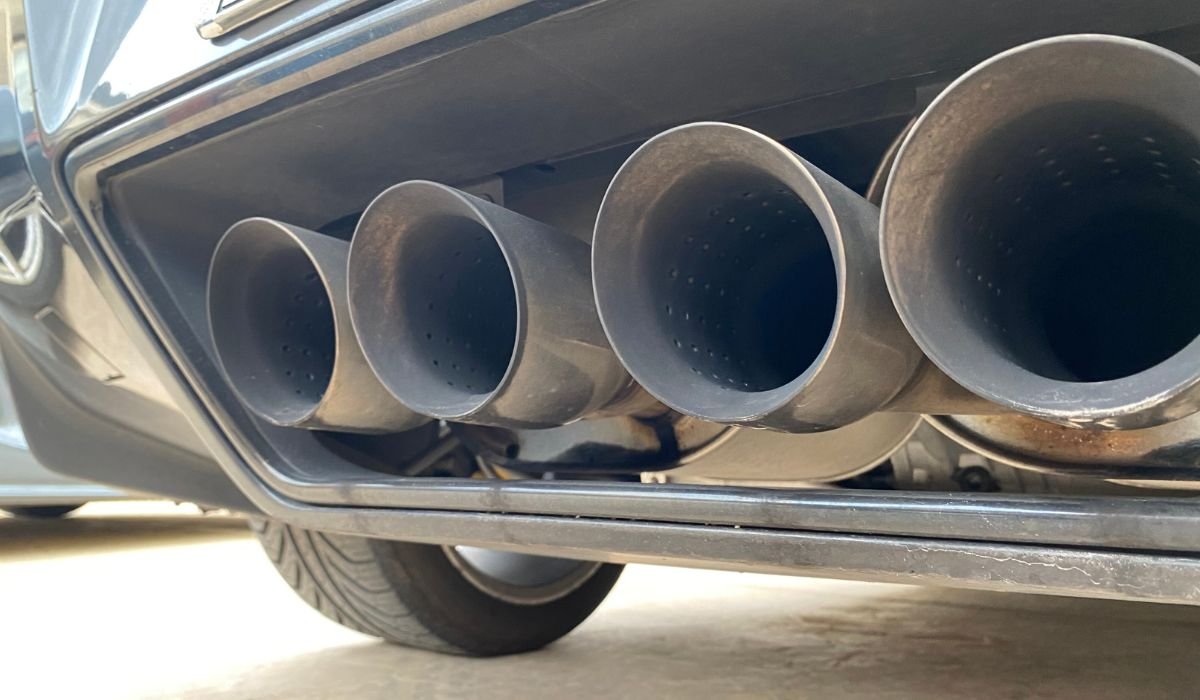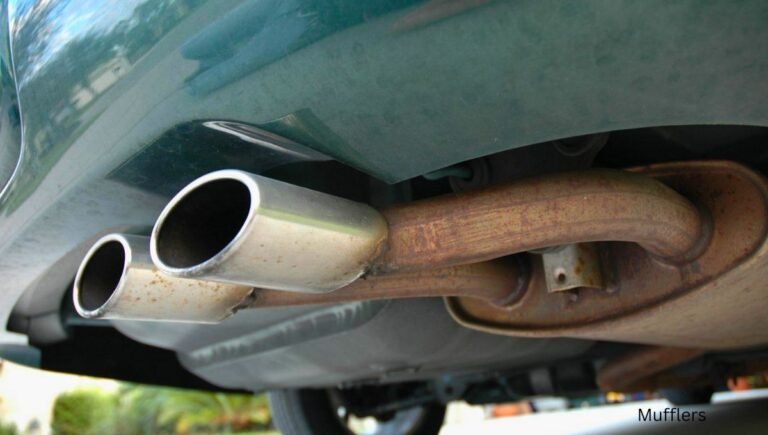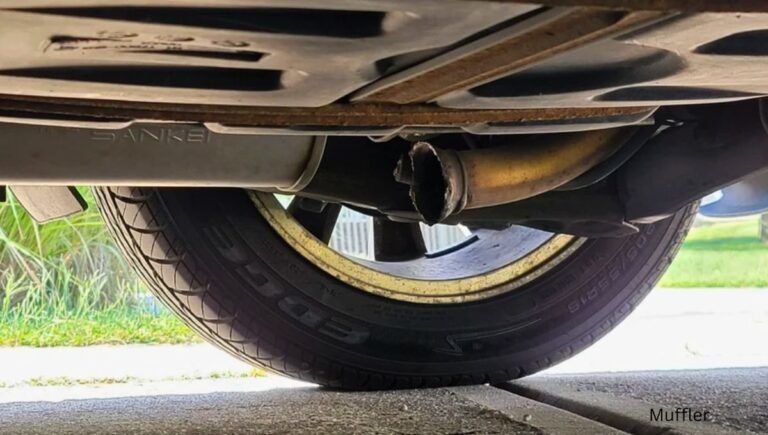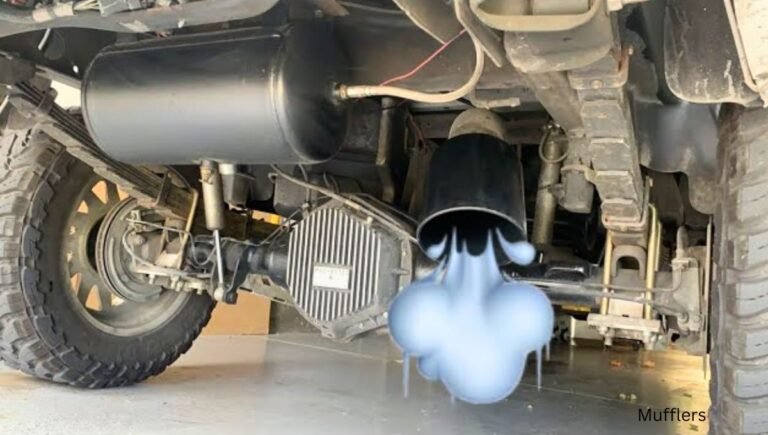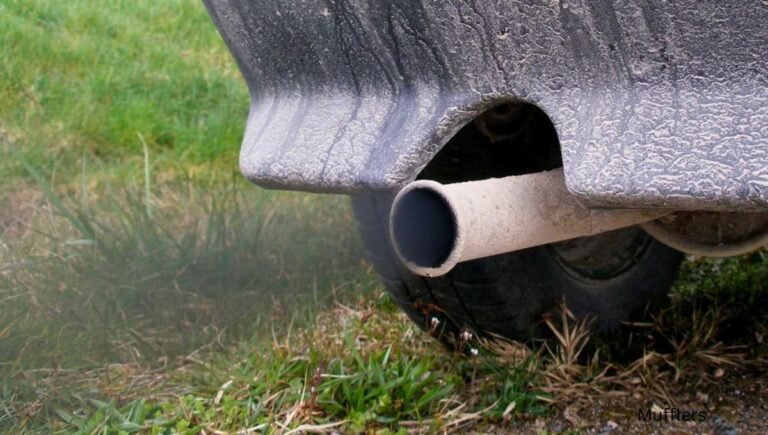Can a Bad Muffler Cause Loss of Power? Unveil the Truth!
Yes, a bad muffler can cause loss of power in a vehicle due to restricted exhaust flow. Inefficient exhaust expulsion hinders engine performance by reducing power output.
When a muffler is faulty, the engine struggles to expel exhaust gases, leading to decreased horsepower and overall performance. This issue can manifest as sluggish acceleration and reduced fuel efficiency. Addressing muffler problems promptly is crucial to maintain optimal engine power and prevent further damage.
By ensuring proper exhaust system function, drivers can enjoy improved performance and fuel economy. Regular maintenance checks and timely repairs are essential to prevent power loss caused by a bad muffler.
Introduction To Muffler Functionality
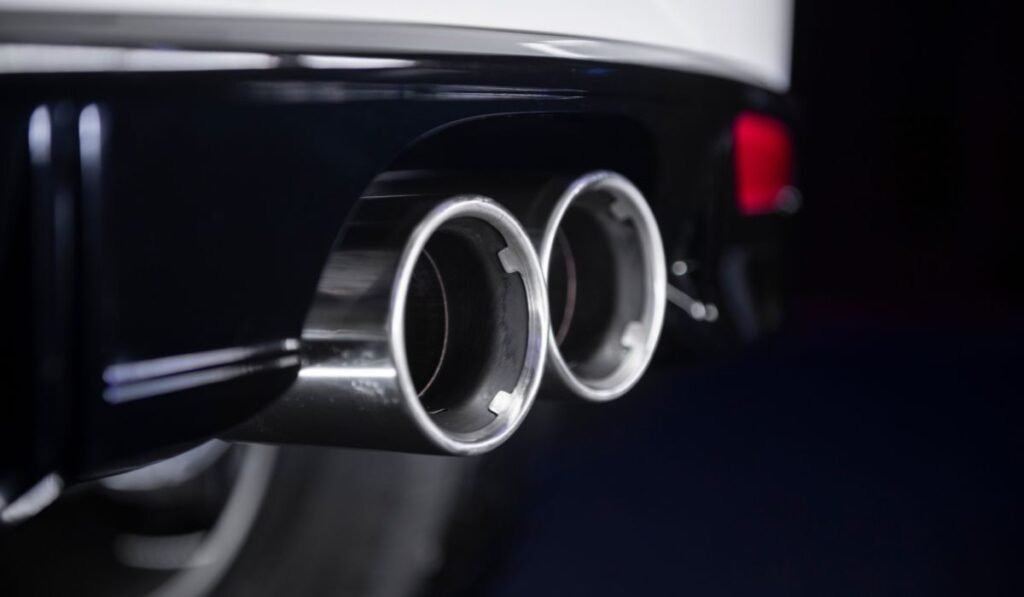
A malfunctioning muffler can indeed lead to a loss of power in your vehicle. The muffler plays a crucial role in reducing engine noise and maintaining engine performance by regulating exhaust flow. If the muffler is not functioning properly, it can restrict the exhaust system, causing a decrease in engine power and efficiency.
Regular maintenance and timely repairs are essential to ensure optimal muffler functionality and overall vehicle performance.
When it comes to the functioning of a vehicle, the muffler plays an important role in keeping the engine running smoothly. The muffler is a component of the exhaust system that helps reduce the noise produced by the engine. However, the muffler has more functionality than just reducing noise. It plays a crucial role in improving the overall performance of the engine. In this article, we will discuss the role of the muffler in the exhaust system and its impact on engine performance.
Role In Exhaust System
The muffler is a part of the exhaust system that is responsible for reducing the noise produced by the engine. The exhaust system comprises a series of pipes that transport the exhaust gases from the engine to the outside environment. The muffler is located at the end of the exhaust system and is responsible for reducing the noise produced by the engine. The muffler has a series of chambers that help reduce the noise produced by the engine. As the exhaust gases pass through the muffler, they bounce off the walls of the chambers, reducing their speed and noise.
Impact On Engine Performance
The muffler has an impact on the overall performance of the engine. A bad muffler can cause loss of power, decrease fuel efficiency, and increase emissions. A muffler that is clogged or damaged can restrict the flow of exhaust gases, reducing the efficiency of the engine. This can lead to a loss of power and decreased fuel efficiency. In addition, a bad muffler can increase emissions, causing the vehicle to fail emissions tests. Therefore, it is important to ensure that the muffler is functioning properly and is in good condition.
In conclusion, the muffler plays an important role in the functioning of the engine and the exhaust system. A bad muffler can cause loss of power, decrease fuel efficiency, and increase emissions. Therefore, it is important to ensure that the muffler is functioning properly and is in good condition.
Signs Of Muffler Problems
A muffler is an essential component of your vehicle’s exhaust system. It helps to reduce the noise produced by the engine and also helps to control emissions. A bad muffler can cause several problems, including a loss of power. Here are some signs that indicate your muffler may be failing:
Unusual Noises
If you hear unusual noises coming from your vehicle’s exhaust system, it may be a sign of muffler problems. These noises can include rattling, hissing, or even a loud roar. These noises are usually caused by a damaged muffler or a loose connection in the exhaust system.
Visible Rust And Damage
If you notice visible rust or damage on your muffler, it may be a sign that it is failing. Rust is a common problem with mufflers, especially in areas with high humidity. Over time, rust can cause holes to form in the muffler, which can lead to a loss of power and increased noise levels.
If you notice any of these signs, it’s important to have your muffler inspected by a qualified mechanic. A failing muffler can cause serious problems for your vehicle, and it’s important to address the issue before it causes further damage.
The Connection Between Mufflers And Engine Power
Have you ever wondered if a bad muffler could be the reason behind the loss of power in your vehicle? It’s a common question among car owners, and the answer lies in understanding the dynamics of exhaust backpressure and its effect on engine efficiency.
Exhaust Backpressure Dynamics
Exhaust backpressure refers to the resistance in the exhaust system that can impact engine performance. When a muffler becomes clogged or develops internal damage, it can disrupt the flow of exhaust gases, leading to increased backpressure. This build-up of pressure can impede the smooth exit of exhaust gases from the engine, ultimately affecting its power output.
Effect On Engine Efficiency
Excessive backpressure caused by a bad muffler can restrict the engine’s ability to expel exhaust gases, leading to decreased efficiency. This can result in a reduction in power output and overall performance of the vehicle. Additionally, it can also lead to increased fuel consumption and potential damage to engine components over time.
Exploring The Loss Of Power Phenomenon

When it comes to the performance of your vehicle, a bad muffler can have a significant impact on its power output. The muffler is an essential component of the exhaust system, responsible for reducing noise and improving overall engine performance. However, if the muffler is in poor condition or malfunctioning, it can lead to a loss of power. In this section, we will delve into the symptoms experienced by drivers when their vehicle’s muffler is faulty, as well as the potential risks and complications associated with this issue.
Symptoms Experienced By Drivers
Recognizing the symptoms of a bad muffler is crucial in identifying the loss of power phenomenon. Here are some common signs that drivers may experience:
- Reduced acceleration: A faulty muffler can restrict the flow of exhaust gases, leading to a decrease in acceleration and overall power.
- Loss of engine performance: If the muffler is clogged or damaged, it can cause backpressure, resulting in a decrease in engine performance.
- Increased exhaust noise: A failing muffler may produce excessive noise or unusual sounds, indicating a potential issue.
- Poor fuel efficiency: When the muffler is not functioning properly, it can disrupt the air-to-fuel ratio, leading to increased fuel consumption.
Potential Risks And Complications
Ignoring a bad muffler can lead to various risks and complications, impacting both your vehicle’s performance and your safety on the road. Here are some potential risks associated with a faulty muffler:
| Risk/Complication | Description |
|---|---|
| Engine damage | Excessive backpressure caused by a bad muffler can lead to engine overheating and potential damage. |
| Exhaust leaks | A deteriorated muffler can develop cracks or holes, resulting in exhaust leaks. These leaks can release harmful gases into the environment and pose health risks. |
| Failed emissions test | A malfunctioning muffler can negatively affect your vehicle’s emissions, causing it to fail mandatory emissions tests. |
| Increased maintenance costs | Continued use of a bad muffler can lead to additional damage to other components of the exhaust system, resulting in higher repair and maintenance expenses. |
It is essential to address any issues with your vehicle’s muffler promptly to avoid these risks and complications. Regular maintenance and inspection of the exhaust system can help prevent a loss of power and ensure optimal performance.
Diagnostic Approaches
When experiencing a loss of power in your vehicle, it is important to identify the root cause of the issue. One potential culprit could be a bad muffler. To diagnose whether a bad muffler is causing the loss of power, there are several diagnostic approaches that can be taken.
Visual Inspection Techniques
Visual inspection techniques are an effective way to assess the condition of your muffler. Start by visually examining the muffler for any visible signs of damage, such as rust, holes, or cracks. Pay close attention to the connections between the muffler and the exhaust system, ensuring there are no leaks or loose fittings.
If you notice any visible damage or issues with the muffler, it is recommended to consult with a professional mechanic for further examination and potential repairs or replacements.
Performance Testing Methods
Performance testing methods can provide valuable insights into the functionality of your muffler and its impact on power loss. One commonly used test is the backpressure test, which measures the exhaust system’s resistance to the flow of gases. High backpressure can indicate a clogged or malfunctioning muffler, leading to reduced power output.
Another performance testing method is the sound test. By listening to the sound of your vehicle’s exhaust, you can identify any abnormal or loud noises that may indicate a problem with the muffler. Excessive noise or rattling could be a sign of a damaged or deteriorated muffler, which can affect engine performance.
It is important to note that while these diagnostic approaches can provide valuable insights, it is always recommended to consult with a professional mechanic for a thorough diagnosis and appropriate repairs or replacements.
By utilizing visual inspection techniques and performance testing methods, you can effectively diagnose whether a bad muffler is causing the loss of power in your vehicle. Identifying and addressing this issue promptly can help restore optimal engine performance and improve your driving experience.
Muffler Issues And Fuel Economy
When it comes to maintaining your vehicle’s performance, the muffler plays a crucial role in ensuring optimal fuel economy. A bad muffler can lead to a loss of power and negatively impact your vehicle’s overall efficiency. Let’s explore how muffler issues can affect fuel consumption and long-term cost implications.
Influence On Fuel Consumption
A bad muffler can lead to increased back pressure, causing the engine to work harder and consume more fuel. This inefficiency results in decreased fuel economy, leading to more frequent visits to the gas station and higher fuel expenses.
Long-term Cost Implications
Ignoring muffler issues can lead to a domino effect of problems, ultimately resulting in higher repair and maintenance costs. The increased fuel consumption due to a bad muffler can also have a long-term financial impact, as you’ll end up spending more on fuel over the lifespan of your vehicle.
Repair Or Replace? Making The Right Decision
When faced with a bad muffler causing a loss of power, the crucial decision often boils down to whether to repair or replace the component. It’s essential to evaluate the severity of the damage and consider the cost-benefit analysis before making the final call.
Evaluating The Severity Of Damage
Assess the extent of muffler damage to determine if it affects the engine’s performance.
Look for signs of rust, holes, or leaks that may indicate severe damage.
Consider the age of the muffler and the overall condition of the exhaust system.
Cost-benefit Analysis
Weigh the repair costs against the price of a new muffler to make an informed decision.
Factor in the potential benefits of improved engine performance with a new muffler.
Compare the long-term reliability and efficiency of a repair versus a replacement.
Preventive Measures And Maintenance Tips
A bad muffler can lead to a loss of power in your vehicle. It’s essential to address this issue promptly to avoid further damage. Regular inspection and maintenance of the muffler can prevent power loss and ensure optimal performance of your vehicle.
Proper check-ups are crucial for identifying issues early and ensuring optimal muffler performance.
Regular Check-ups
Best Practices For Muffler Care
Professional Insights
Expert Opinions
Experts agree that a bad muffler can indeed cause a loss of power in a vehicle. The muffler is a crucial component of the exhaust system, and if it is malfunctioning, it can restrict the flow of exhaust gases, leading to decreased engine performance.
Case Studies And Real-life Examples
In a study conducted by automotive technicians, vehicles with damaged mufflers showed a noticeable decrease in horsepower and acceleration. This real-life example highlights the impact a faulty muffler can have on a car’s power output.
Conclusion
A bad muffler can definitely cause loss of power in your vehicle. It’s important to address muffler issues promptly to maintain optimal engine performance. Regular maintenance and timely repairs can prevent power loss and ensure a smooth driving experience. Keep an eye on your muffler to avoid any potential power loss.

